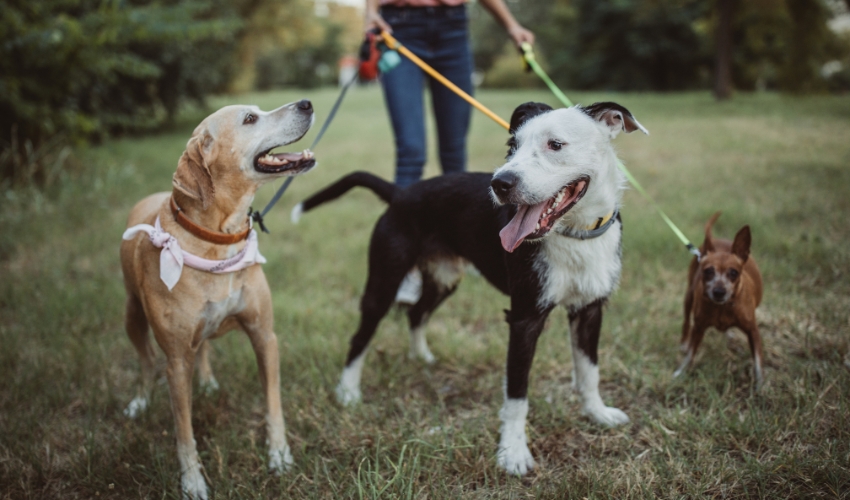When our canine companions start coughing, it’s their way of communicating potential respiratory distress. As a responsible pet owner, deciphering this language is crucial for recognizing the underlying issues and providing timely care. In this comprehensive guide, we will delve into the intricacies of respiratory problems in dogs, exploring common causes, recognizing symptoms, and implementing effective management strategies. By understanding the nuances of coughing in canines, we can actively contribute to their respiratory health and overall well-being.
Unmasking Canine Respiratory Issues
Common Causes of Canine Respiratory Problems
Kennel Cough (Infectious Tracheobronchitis): Kennel cough is akin to the common cold in humans, often contracted in places where dogs congregate. The infection leads to a distinctive hacking cough, resembling honking, and may be accompanied by nasal discharge and sneezing.
Canine Influenza: Similar to human influenza, canine influenza causes coughing, sneezing, and nasal discharge. Dogs in close contact with others, such as in kennels or grooming facilities, are at higher risk.
Heartworm Disease: Transmitted through mosquito bites, heartworm disease can affect the respiratory system, causing coughing as a symptom of advanced infection. Prevention is crucial.
Chronic Bronchitis: Chronic bronchitis can result in persistent coughing due to inflammation of the bronchial tubes. This condition is more prevalent in older dogs and may require ongoing management.
Tracheal Collapse: Tracheal collapse is a condition where the windpipe weakens, leading to a distinctive honking cough, especially during excitement or exertion. Small and toy breeds are more prone to this issue.
Recognizing Symptoms
Different Types of Coughs:
Identifying the type of cough is crucial. A dry, hacking cough may indicate infectious conditions, while wet or productive coughs may suggest respiratory infections with mucus.
Labored Breathing: Labored or rapid breathing, especially at rest, can signal respiratory distress. This may be accompanied by wheezing or panting.
Nasal Discharge: The presence of nasal discharge, whether clear or colored, can provide insights into the underlying cause of respiratory problems.
Exercise Intolerance: Dogs experiencing respiratory issues may display reluctance or difficulty engaging in physical activities. Exercise intolerance is often an early sign of respiratory distress.
Cyanosis (Bluish Tint): In severe cases, dogs may exhibit a bluish tint to their gums or tongue, indicating inadequate oxygenation. This is a medical emergency requiring immediate veterinary attention.
Preventive Measures for Respiratory Health
1. Vaccination: Ensure your dog’s vaccinations are up-to-date, especially for infectious respiratory diseases like kennel cough and canine influenza. Regular boosters are essential.
2. Heartworm Prevention: Administer heartworm preventatives regularly to protect your dog from this potentially life-threatening parasite. Consistency is key for effective prevention.
3. Maintain a Clean Environment: Regularly clean your dog’s living environment to minimize exposure to allergens and infectious agents. Adequate ventilation is also crucial for respiratory health.
4. Avoid Exposure to Sick Dogs: Limit your dog’s contact with sick animals, especially in areas where dogs gather, such as dog parks or grooming facilities. Practicing responsible socialization is vital.
5. Regular Veterinary Check-ups: Schedule routine veterinary check-ups to monitor your dog’s overall health, including respiratory function. Early detection can lead to prompt intervention and effective management.
Treatment Strategies for Canine Respiratory Issues
1. Antibiotics or Antivirals: Respiratory infections may require specific medications, such as antibiotics for bacterial infections or antivirals for viral conditions. Timely and accurate diagnosis is crucial for effective treatment.
2. Cough Suppressants: Cough suppressants may be prescribed to alleviate discomfort and reduce the frequency of coughing, allowing the respiratory system to heal. Follow your veterinarian’s guidance on dosage and administration.
3. Bronchodilators: Bronchodilators may be recommended for conditions causing bronchial constriction, facilitating easier breathing. Understanding proper usage and potential side effects is essential for their effectiveness.
4. Heartworm Treatment: If diagnosed with heartworm disease, dogs may undergo a treatment plan to eliminate the parasites. Prevention remains key, underscoring the importance of regular testing.
5. Supportive Care: Provide a comfortable and stress-free environment for your dog. Humidifiers, gentle exercise, and proper nutrition contribute to overall well-being. Follow your veterinarian’s advice for optimal supportive care.

Providing Care for Dogs with Respiratory Issues
1. Isolation and Rest: If contagious infections are suspected, isolating your pet is crucial. Allow ample rest for the respiratory system to recover. Create a quiet and comfortable space for recuperation.
2. Humidification: Humidifiers can add moisture to the air, helping soothe the respiratory tract. This is particularly beneficial for dogs with dry coughs. Maintain proper cleaning of the humidifier to prevent mold growth.
3. Nutritional Support: Ensure your dog receives a balanced and nutritious diet to support overall health and recovery. Consult with your veterinarian for dietary recommendations tailored to your dog’s specific needs.
4. Monitoring: Regularly monitor your dog’s symptoms, behavior, and response to treatment. Any worsening of symptoms or development of new issues should prompt a visit to the veterinarian for a comprehensive evaluation.
5. Veterinary Follow-ups: Follow your veterinarian’s recommended schedule for check-ups and follow-ups. This ensures ongoing assessment and adjustments to the treatment plan as needed. Open communication with your veterinarian is vital for the best possible care.
Conclusion
Respiratory problems in dogs can range from mild coughing to severe conditions requiring immediate attention. As responsible pet owners, it is our duty to decipher the language of coughing canines and take prompt action to address their respiratory health.
By understanding common causes, recognizing symptoms, and implementing preventive measures, we can significantly contribute to the well-being of our furry companions. Regular veterinary care, vaccination, and a supportive home environment are vital components of ensuring that when our canines speak through coughs, we listen and provide the care they need to lead healthy and happy lives. As you navigate the realm of canine respiratory health, always consult with your veterinarian for personalized advice and guidance tailored to your dog’s unique needs.













